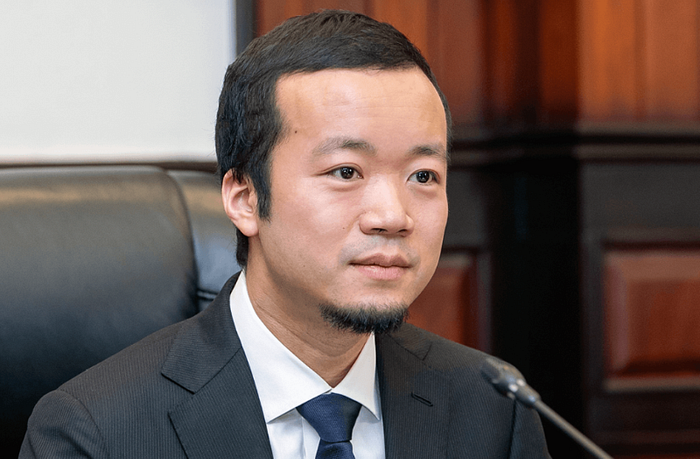Love, Lies, and Ledger Sheets: The $14 Billion Crypto Scam That Broke Hearts and Blockchains
Inside the “Pig-Butchering” Empire that blended romance, human trafficking, and digital deception
The World’s Most Expensive Love Story

It started like any other online connection — a stranger’s text, a friendly emoji, a spark of familiarity.
But behind those messages wasn’t a lonely soul looking for love. It was a slave in a Cambodian compound, forced to send hundreds of flirty texts per day under threat of torture.
In October 2025, the U.S. Department of Justice announced one of the largest financial seizures in history: over $14 billion in bitcoin linked to a global network of romance-based crypto scams run by Chen Zhi, the flamboyant chairman of Cambodia’s Prince Holding Group.

Prosecutors allege Chen oversaw an empire that combined human trafficking, psychological manipulation, and digital money laundering into a single industrial-scale con.
“Victims were lured through love stories, exploited for money, and the workers behind the screens were themselves enslaved,” one investigator said. “It’s fraud fused with human misery.”
From Prince to Predator
Chen Zhi was once hailed as one of Southeast Asia’s rising billionaires — a tycoon who mixed luxury real estate with crypto “innovation.”
But according to indictments, he quietly built a parallel business model: criminal call-center compounds across Cambodia and Myanmar where trafficked laborers operated fake investment schemes disguised as romantic relationships.
These weren’t the scrappy scam dens of the past. They were sprawling campuses — dormitories, server rooms, luxury SUVs parked outside — guarded by armed men. Thousands of workers were trapped inside, their passports confiscated.
Each “employee” was assigned dozens of Western victims on WhatsApp, Tinder, or Telegram. Their mission: build affection, create trust, and then introduce a “sure-thing” crypto opportunity hosted on one of Chen’s shell platforms.
Daily quotas were brutal. If a worker failed to bring in money, they were beaten or shocked with electric batons.
The Anatomy of a “Pig-Butchering”
The term “pig-butchering” (coined from Chinese slang shā zhū pán) describes the cruel arc of the scam: fatten the pig before the slaughter.
- Seduction: The scammer initiates friendly conversation — a “wrong-number” text, a dating-app match, or a casual DM.
- Bonding: They mirror the victim’s interests, send selfies, talk daily, sometimes for months.
- Investment: The “partner” claims they’ve made money trading crypto or gold, invites the victim to try it on a convincing but fake trading app.
- Reinvestment: Initial “profits” show up on-screen to build confidence, but withdrawals quietly fail.
- Extraction: Once the victim is all-in, contact stops. The “partner” vanishes.
What made Chen Zhi’s operation different was its scale and sophistication. U.S. agents traced more than 127,000 BTC to wallets tied to his network. Laundered funds moved through casinos, shell companies, and OTC desks before disappearing into the global crypto fog.
Love Letters from a Prison
For the trafficked workers, romance scripts were work assignments.
Leaked WhatsApp training manuals from the seized compounds included lines like:
“Use emojis often. Say you miss them. Build intimacy before you talk money.”
Victims of the labor side described twelve-hour shifts and quotas of $100,000 per month. Those who failed were sold to other scam centers or beaten.
One survivor told Radio Free Asia:
“We were told to pretend to love people while we were starving ourselves.”
Many of these workers came from China, Vietnam, and Thailand, tricked by online job ads for “customer service” positions in Cambodia. Once they arrived, passports were seized, and escape attempts led to torture or organ-harvesting threats.
The Bitcoin Mountain
When U.S. investigators finally pierced the network, they found one of the largest private crypto holdings ever recorded. The 127,271 BTC — worth roughly $14.5 billion — sat dormant in a cluster of wallets connected to Chen’s conglomerate accounts.
Federal agents coordinated with Interpol’s Operation HAECHI VI to freeze the assets. Alongside the seizures, the U.S. Treasury’s OFAC sanctioned Chen Zhi, Prince Group, and more than 140 affiliated entities for “operating forced-labor scam compounds engaged in large-scale financial fraud.”
It’s an unprecedented fusion of anti-trafficking and anti-money-laundering enforcement: treating romance scams and slavery as parts of the same criminal ecosystem
Why It Worked So Well
Three systemic failures made the empire possible:
1. The Emotional Firewall Doesn’t Exist.
Romance fraud bypasses logic. Victims aren’t fooled by technology; they’re co-opted by connection. Once trust is built, even sophisticated investors ignore red flags.
2. Crypto’s Regulatory Black Holes.
Unhosted wallets, offshore exchanges, and casino-based OTC desks make tracing nearly impossible until after the damage is done.
3. Governance Gaps.
Cambodia’s loosely regulated investment zones allowed compounds to operate openly for years. Local authorities, often bribed, treated them as “private businesses.”
The Human Toll
The numbers are staggering:
- An estimated 300,000 people enslaved in Southeast Asian scam centers.
- Victims in more than 50 countries.
- Tens of thousands of online romances turned into financial ruin.
A Filipino worker who escaped a Sihanoukville compound told Reuters.
“Every message we sent was to keep the victim hopeful — that was the word, ‘hope.’ You must never let hope die until the money is gone.”
For the victims on both sides — those who loved, and those who labored — the pain was the same: exploitation dressed as intimacy.
Following the Digital Blood Money
Blockchain analytics firms like Chainalysis and Elliptic helped map the crypto flows.
Funds cycled through three layers:
- “Romance inflows” from victims via fake exchanges.
- “Mixing & consolidation” using privacy tools and cross-chain swaps.
- “Off-ramping” through Chen’s casino and real-estate companies to fiat.
The scheme effectively turned affection into liquidity — billions moved through emotional manipulation at internet speed.
Authorities believe parts of the network still operate under rebranded names in Myanmar and Laos.
The Myth of the Lone Scammer
The cultural image of the scammer — a man in a hoodie or a small team of hackers — collapses here.
This was industrialized crime: venture-capital-sized budgets, C-suite executives, accountants, recruiters, and armed guards.
It blurs moral categories: investors who knowingly funded “customer service” startups in Cambodia may have indirectly bankrolled forced labor.
As one U.N. expert put it:
“This is not online fraud. It’s a supply chain of exploitation.”
Lessons for Regulators and Platforms
Dating apps:
Require stronger identity verification and pattern detection for “wrong-number” contacts.
Financial institutions:
Integrate romance-fraud typologies into AML and suspicious-activity monitoring.
Crypto exchanges:
Flag high-velocity small deposits flowing into unregistered OTC wallets.
Governments:
Treat scam compounds as human-rights violations, not just financial crimes.
Individuals:
If someone online wants your heart and your investment, believe the red flag before the compliment.
The Language Debate
Even the phrase “pig-butchering” is under scrutiny.
Interpol and anti-trafficking groups have called for a new term, arguing it dehumanizes victims.
Wired Magazine recently suggested “cyber enslavement fraud” as a more accurate label — one that recognizes the layered cruelty of emotional, physical, and financial abuse.
It’s a reminder: words matter when crimes steal both love and dignity.
What Comes Next
As of October 2025, Chen Zhi remains under indictment. His seized bitcoin wallets will likely fuel years of court battles across multiple jurisdictions.
For now, the case has become a symbol of the 2020s — a decade where technology amplified every human vulnerability.
Love, greed, loneliness, and ambition all converged into one transaction: Send crypto.
And with a few keystrokes, billions vanished into the blockchain.
Suggested Reading:
Your Business — On AutoPilot with DDImedia AI Assistant
(Join Our Waitlist)
Visit us at DataDrivenInvestor.com
Join our creator ecosystem here.
DDI Official Telegram Channel: https://t.me/+tafUp6ecEys4YjQ1
Listen To The Article

Black Friday 30%
Offer









